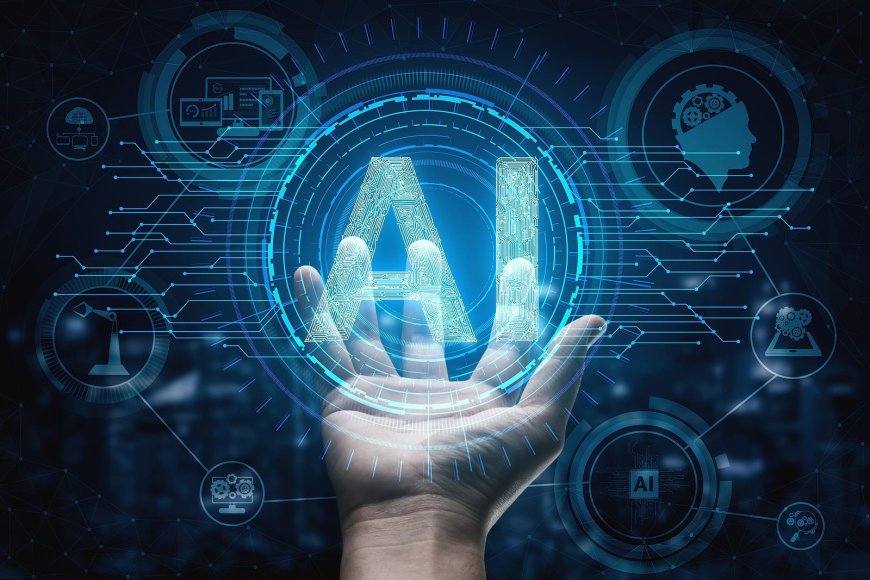Artificial Intelligence (AI) and Its Impact on Industries
In the not-so-distant past, the concept of machines thinking and making decisions like humans was relegated to the realms of science fiction. However, with the rapid advancements in technology, Artificial Intelligence (AI) has emerged as a powerful force reshaping industries across the globe.

Introduction
In the not-so-distant past, the concept of machines thinking and making decisions like humans was relegated to the realms of science fiction. However, with the rapid advancements in technology, Artificial Intelligence (AI) has emerged as a powerful force reshaping industries across the globe. From healthcare to finance, from manufacturing to marketing, AI is leaving an indelible mark on how businesses operate and consumers experience products and services. In this blog, we will explore the profound impact of AI on various industries.
- Healthcare
AI is revolutionizing the healthcare sector. Machine learning algorithms are helping in disease diagnosis and drug discovery, reducing the time and cost associated with medical research. AI-driven robots and chatbots are providing assistance in patient care and engagement, ensuring more efficient and personalized healthcare. Additionally, predictive analytics powered by AI can help hospitals manage resources and staff more effectively, improving patient outcomes and reducing costs.
- Finance
In the financial industry, AI has proven to be a game-changer. Algorithmic trading powered by AI can make split-second investment decisions, increasing profitability. Machine learning can detect fraud and anomalies in financial transactions more accurately than ever before. Chatbots and virtual financial assistants are providing customers with round-the-clock support and guidance. With AI, financial institutions can offer more personalized services, streamline operations, and enhance risk management.
- Manufacturing
AI is transforming the manufacturing sector with the concept of Industry 4.0. Robotics, powered by AI and machine learning, are enhancing automation and efficiency on factory floors. Predictive maintenance is helping manufacturers avoid costly breakdowns by monitoring machinery health in real-time. Supply chain optimization through AI algorithms is reducing wastage and ensuring products reach consumers faster and more efficiently.
- Marketing
Marketers are leveraging AI to gain deeper insights into customer behavior. Machine learning algorithms analyze vast datasets to provide personalized recommendations and target advertising more effectively. Chatbots and AI-driven customer support services improve customer engagement. Natural language processing allows for sentiment analysis, helping companies understand consumer opinions and tailor their marketing strategies accordingly.
- Education
AI is enhancing education by personalizing learning experiences. Intelligent tutoring systems adapt to individual student needs, offering tailored content and feedback. Automated grading of assignments and tests frees up educators to focus on teaching rather than administrative tasks. AI-powered tools can also help identify struggling students and provide early intervention to improve their learning outcomes.
- Agriculture
In agriculture, AI is used for precision farming. Drones and autonomous tractors equipped with AI technologies can optimize crop management, reducing resource waste and increasing yields. AI also aids in monitoring soil conditions, predicting disease outbreaks, and managing livestock more effectively.
- Retail
In the retail industry, AI is transforming the shopping experience. Chatbots and virtual shopping assistants guide customers through their purchase journey. Recommendation engines use AI to suggest products that align with customer preferences, increasing sales and customer satisfaction. Inventory management is optimized, reducing costs and minimizing stockouts.
- Energy
AI is driving the energy sector toward greater sustainability. Smart grids use AI to balance energy supply and demand more efficiently, reducing waste. Predictive maintenance minimizes downtime in power generation facilities. AI also plays a critical role in optimizing the use of renewable energy sources.
Conclusion
The impact of Artificial Intelligence on industries is profound and far-reaching. AI is enabling businesses to operate more efficiently, reduce costs, and enhance customer experiences. It is also fostering innovation and driving industries toward greater sustainability. As AI continues to advance, it's essential for businesses and professionals in every sector to embrace these technologies, adapt to the changes they bring, and harness the power of AI to stay competitive and thrive in the ever-evolving landscape of the modern world.







